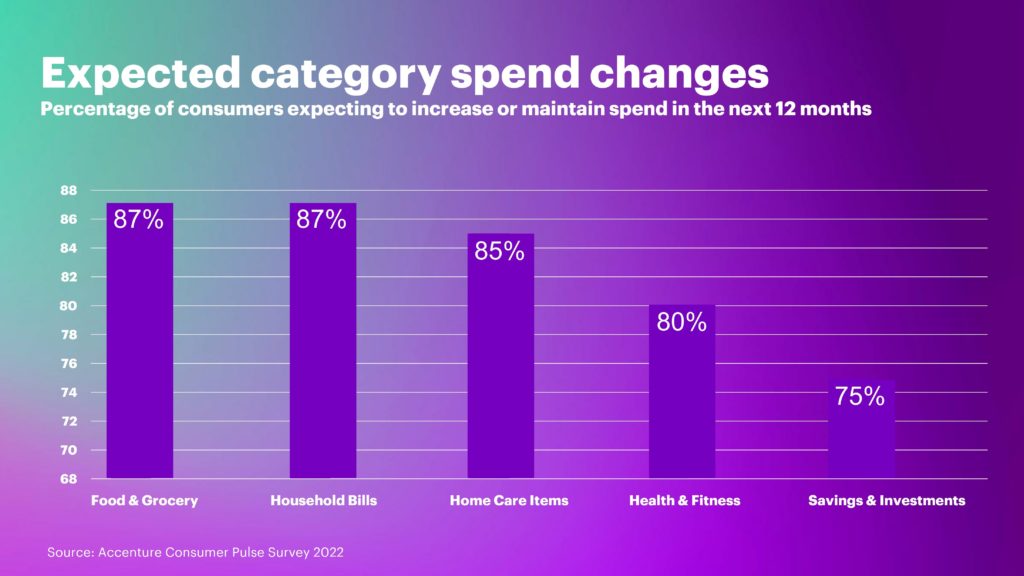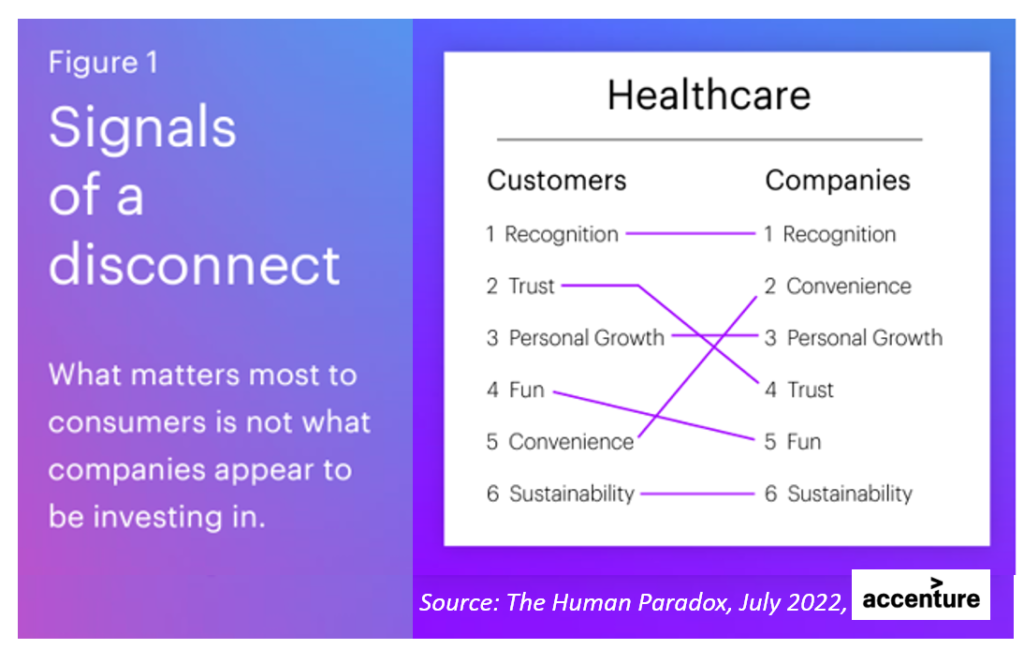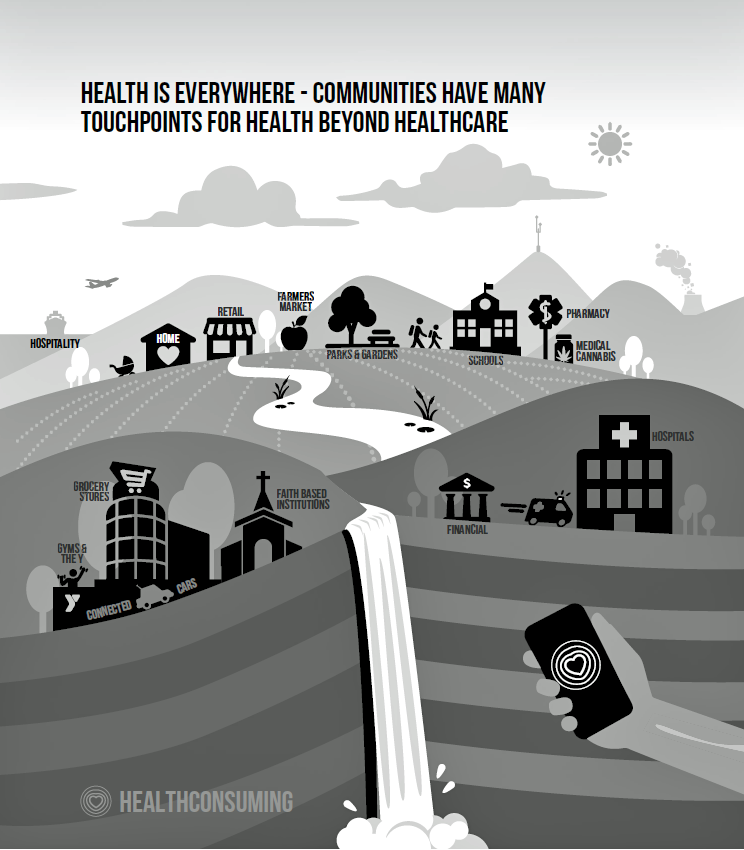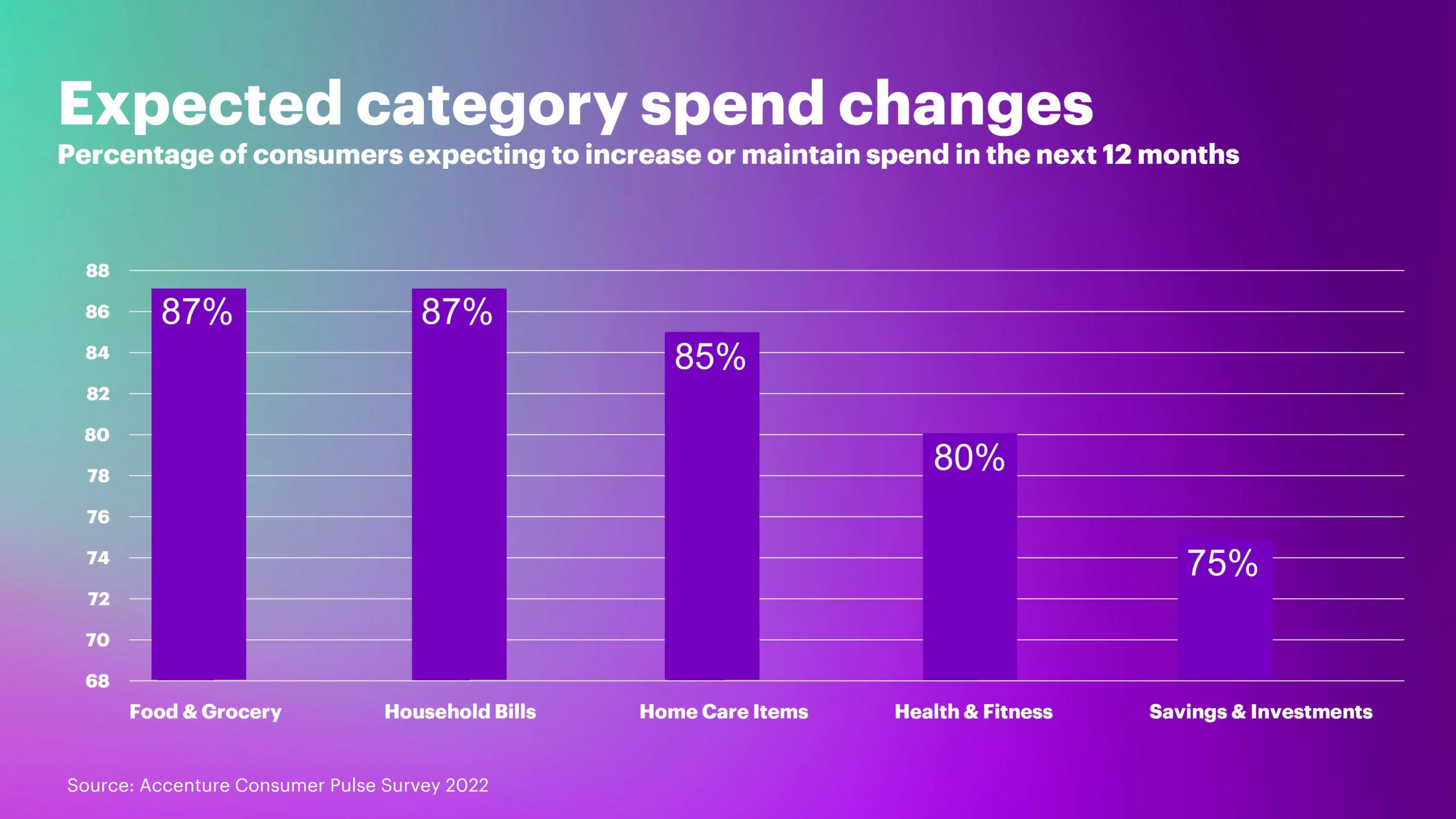Consumers consider health and well-being as an “essential” household spending category based on new research from Accenture.

Accenture polled over 11,000 consumers in 17 countries, considering how people are faring amid “widespread uncertainty and personal financial strains,” in the firm’s words.
While two in three consumers feel financially stressed, 4 in 5 intend to grow or hold their personal spending on health and fitness steady in the next year.
The first chart graphs data from Accenture’s global survey. In the U.S., more granularly, 26% of consumers intend to increase spending on health and wellness significantly more or more; 50% plan to hold spending even for H&W; and 24% would spend significantly less or less.
Net-net for U.S. consumers, 76% of people would plan to spend more or maintain their spending on health and wellness over the next twelve months.
Accenture’s lead for Consumer Goods & Services Oliver Wright recommends in the report’s press release that, “consumer-facing companies [must] tap into cross-industry expertise and scientific and technological breakthroughs while also considering consumers’ changing priorities when designing new offerings.”
On the healthcare side of Accenture, leader Rich Birhanzel spoke to the industry’s opportunity to “explore and partner with consumer-facing companies to improve access, experience and outcomes for people and their healthcare journeys.”
Health Populi’s Hot Points: It’s useful to know that this research was borne out of Accenture’s Retail industry practice, drawing implications for four key sectors: consumer goods, retail, travel, and health.
That four-way, cross-cutting lens speaks to the increasingly clear and embraced reality that health happens where we live, work, play, pray, learn, and shop.
All of those daily life-flows are blurring, accelerated by the pandemic and trends already in play and place by early 2020.

To this point, a relevant Accenture report published earlier in 2022 was titled, The Human Paradox: From Customer Centricity to Life Centricity. In calling out that people wanted to be viewed as human beings, “not walking wallets,” Accenture teased out three key aspects of that human paradox:
- Consumers were prioritizing themselves but also wanted to effect change for others and communities
- Consumers wanted to follow their personal values but not at the expense of financial value — a concept I’ve been discussing for a long time, the convergence of “value + values”
- Consumers want to be in control of their own fate but also want to be guided in that direction (think: personalized recommendations based on a firm’s learned preferences from past purchases and shared data).
All three of these findings fit into the spending priorities gleaned in the latest research discussed above the Hot Points, and also specifically for the evolving health/care ecosystem:
- As patients grow muscles as health citizens, they have come to learn more about public health and how their own behaviors impact and co-determine others’ (as we have learned through the work of Christakis and Fowler in their Connected research, among other studies into social networks’ impacts on health)
- As patients continue to morph into health consumers and medical bill payers, they will seek value-based care based on their own values, customers, preferences, and beliefs
- Patients seek more personalized guidance for health care decisions and self-care, from assessing approaches to dealing with cancer diagnoses to recommendations for wearable tech based on individual goals, budgets, and features.

This approach requires, as Accenture’s guidance for all of us notes, collaboration and partnering across industries and health/care segments that have not traditionally worked together — or if they have tried, lacked success and traction. Key to success this round will be listening to consumers to learn about and address, authentically and with fierce dedication to real life challenges, solutions that are accessible, valued, and enchanting for people….where they live, work, play, pray, learn and shop.





 Interviewed live on BNN Bloomberg (Canada) on the market for GLP-1 drugs for weight loss and their impact on both the health care system and consumer goods and services -- notably, food, nutrition, retail health, gyms, and other sectors.
Interviewed live on BNN Bloomberg (Canada) on the market for GLP-1 drugs for weight loss and their impact on both the health care system and consumer goods and services -- notably, food, nutrition, retail health, gyms, and other sectors. Thank you, Feedspot, for
Thank you, Feedspot, for  As you may know, I have been splitting work- and living-time between the U.S. and the E.U., most recently living in and working from Brussels. In the month of September 2024, I'll be splitting time between London and other parts of the U.K., and Italy where I'll be working with clients on consumer health, self-care and home care focused on food-as-medicine, digital health, business and scenario planning for the future...
As you may know, I have been splitting work- and living-time between the U.S. and the E.U., most recently living in and working from Brussels. In the month of September 2024, I'll be splitting time between London and other parts of the U.K., and Italy where I'll be working with clients on consumer health, self-care and home care focused on food-as-medicine, digital health, business and scenario planning for the future...